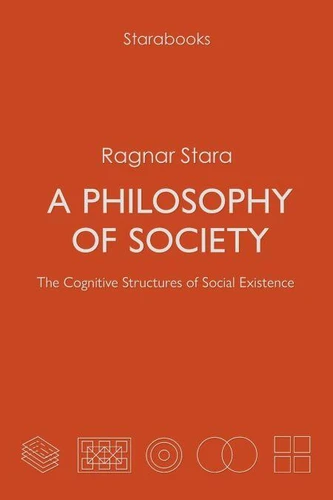A Philosophy of Society. The Cognitive Structures of Social Existence
Par :Formats :
Disponible dans votre compte client Decitre ou Furet du Nord dès validation de votre commande. Le format ePub est :
- Compatible avec une lecture sur My Vivlio (smartphone, tablette, ordinateur)
- Compatible avec une lecture sur liseuses Vivlio
- Pour les liseuses autres que Vivlio, vous devez utiliser le logiciel Adobe Digital Edition. Non compatible avec la lecture sur les liseuses Kindle, Remarkable et Sony
 , qui est-ce ?
, qui est-ce ?Notre partenaire de plateforme de lecture numérique où vous retrouverez l'ensemble de vos ebooks gratuitement
Pour en savoir plus sur nos ebooks, consultez notre aide en ligne ici
- FormatePub
- ISBN978-952-69507-9-2
- EAN9789526950792
- Date de parution22/03/2025
- Protection num.pas de protection
- Infos supplémentairesepub
- ÉditeurStarabooks
Résumé
The theory of existence highlights the tension between the empirical phenomena and the cognitive structure that explains the phenomena. The physical world differs from the world which people imagine is society. The concepts of nation and society evade our attempts at definition. Philosophy offers a way of analyzing these concepts. Reworking Aristotle´s concepts of substance and category provides a tool for studying the social reality.
The social sciences require an elucidatory definition of society. Sociologists are focused on the empirical within society but not what society is. Aristotle´s social human forms a society but this I the se of set theory. Rousseau's´ social contract and Hobbes´ social control of people arise from the cognitive structure of set theory. Set theory as complemented by Uuno Saarnio´s typology of the relations of the parts within the whole.
Society and the nation are wholes and can be studied based on Saarnio´s typology. Leibniz 'doctrine of toleration provides a determination of the social. Society becomes tolerantia ecclesiastica. The spheres of toleration are wholes with parts. Society as tolerantia ecclesiastica interferes that society is founded on a common value judgement regarding human relations. Society permits limited conflicts between people and groups within the common unity.
The social sciences require an elucidatory definition of society. Sociologists are focused on the empirical within society but not what society is. Aristotle´s social human forms a society but this I the se of set theory. Rousseau's´ social contract and Hobbes´ social control of people arise from the cognitive structure of set theory. Set theory as complemented by Uuno Saarnio´s typology of the relations of the parts within the whole.
Society and the nation are wholes and can be studied based on Saarnio´s typology. Leibniz 'doctrine of toleration provides a determination of the social. Society becomes tolerantia ecclesiastica. The spheres of toleration are wholes with parts. Society as tolerantia ecclesiastica interferes that society is founded on a common value judgement regarding human relations. Society permits limited conflicts between people and groups within the common unity.
The theory of existence highlights the tension between the empirical phenomena and the cognitive structure that explains the phenomena. The physical world differs from the world which people imagine is society. The concepts of nation and society evade our attempts at definition. Philosophy offers a way of analyzing these concepts. Reworking Aristotle´s concepts of substance and category provides a tool for studying the social reality.
The social sciences require an elucidatory definition of society. Sociologists are focused on the empirical within society but not what society is. Aristotle´s social human forms a society but this I the se of set theory. Rousseau's´ social contract and Hobbes´ social control of people arise from the cognitive structure of set theory. Set theory as complemented by Uuno Saarnio´s typology of the relations of the parts within the whole.
Society and the nation are wholes and can be studied based on Saarnio´s typology. Leibniz 'doctrine of toleration provides a determination of the social. Society becomes tolerantia ecclesiastica. The spheres of toleration are wholes with parts. Society as tolerantia ecclesiastica interferes that society is founded on a common value judgement regarding human relations. Society permits limited conflicts between people and groups within the common unity.
The social sciences require an elucidatory definition of society. Sociologists are focused on the empirical within society but not what society is. Aristotle´s social human forms a society but this I the se of set theory. Rousseau's´ social contract and Hobbes´ social control of people arise from the cognitive structure of set theory. Set theory as complemented by Uuno Saarnio´s typology of the relations of the parts within the whole.
Society and the nation are wholes and can be studied based on Saarnio´s typology. Leibniz 'doctrine of toleration provides a determination of the social. Society becomes tolerantia ecclesiastica. The spheres of toleration are wholes with parts. Society as tolerantia ecclesiastica interferes that society is founded on a common value judgement regarding human relations. Society permits limited conflicts between people and groups within the common unity.



